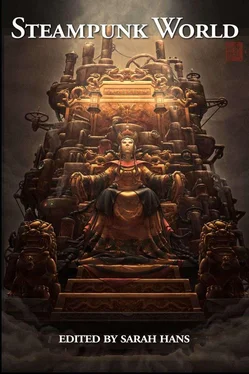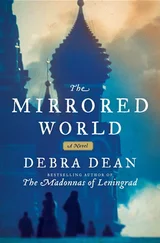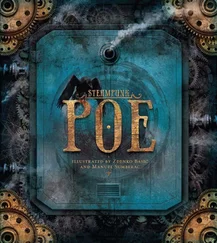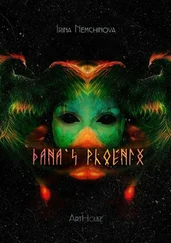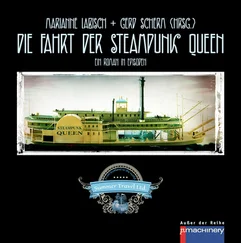“Will you kill me now?” Tariq asked, ready for the retort of the flintlock.
A chuckle came in response.
A sea of Fez-topped heads crowded the street’s length. The stranger walked arm-in-arm with Tariq, like they were the oldest of friends, but the flintlock pressed into Tariq’s ribs said otherwise. Raakin smiled with no warmth to the act, just a fence of teeth.
They passed a row of steps where men sat and argued, newspapers in hand, their gestures made in emphatic motions. The debates followed orbits as familiar as the constellations themselves, the renaissance of the Ottoman Empire, the growing influence of Prussia in the region, the rapid Westernization of Constantinople.
“Why not just destroy the book?” Tariq asked. His family’s enemies certainly would have thrown it on the pyre along with his father had they captured either. They’d been driven out of Damascus for that book, escaping their sanctioned murder.
“Destroy?” Raakin said, pulling Tariq to a stop. “No no, my friend. The Book of ‘Abd-Es-Samad is too valuable to destroy.”
“But—” Tariq hesitated.
“My employer found the City of Brass,” Raakin whispered with a look of delight.
“No,” Tariq said, his voice as distant as the horizon. His father was a fool for believing the legends. They’d lost everything for the mad dreams of ‘Abd-Es-Samad and his city. He had to be wrong—Tariq needed a reason to blame him.
“It is real. We need the book, and you to translate it. Now come,” he said, pulling Tariq along and motioning ahead. Tariq followed the gesture, his eyes resting on Imperial Aerotower, a massive four-walled edifice of marble blocks, windows covered in brass filigree, and hanging platforms from which three airships sat moored. It stood among the bramble of streets of the Galata business district, the cargo hauled up on iron cranes and creaking chains and groaning ropes. “We have a ship to catch.”
Tariq stood upon at the stub-nosed prow of the air dhow, sheltered by the air bladder and the fin sails that peeled away from the flanks. One hand shielded his eyes from the fine grit that peppered his face and hands. With the other, he gripped a thickly braided mooring rope securing the dhow to the balloon, distantly aware of the clash of ages. Steamkraft was fast changing the West’s identity, but in pockets like the Levant, Persia, India, and Africa, the new served only to validate the old… it did not replace it. The old fishing dhows that plied the Nile and the Arabian Gulf and Red Sea had a history as venerable as the book that Tariq held.
As the steam dhow caught the winds, it soared over the desert, the sands below bright with sun and shimmering with heat. The steering rudder, a long dagger of wood banded by iron, split the dunes, allowing the vessel to slalom through the desert with precision. Raakin leaned over and whispered something to the old bedu pilot who cackled at Tariq with tooth-starved gums, his eyes hidden behind a pair of leather goggles.
Tariq had been a hostage since Constantinople; they’d landed in the silk city of Beyrouth along the cedar slopes of the Lebanon Mountains. From there, they boarded the dhow, Raakin ever-smiling, his blade and flintlock within reach. He sensed Tariq’s every intention with almost preternatural skill, always there with a knowing smile when Tariq contemplated escape. So Tariq had given up on flight, especially now that they flew well above the desert, a desert unlike any Tariq had ever seen.
The Syrian expanse of sand felt hard under one’s sandals and stretched out to the horizon with cypress trees and yellow wildflowers, cacti and thorny shrubs to break the plain. This desert, however, was an ocean storm petrified in time and turned to dust. Sand crested the sky and swept outward to flood the horizon. It gave the sense of being motionless and unceasing at the same time, and unknowable.
“It is why the bedu call it the Empty Quarter,” Raakin said, joining Tariq at the prow of the ship.
“My father was obsessed with the delusions of a madman,” Tariq said. “Now you follow one folly with another.”
“Iram of the Pillars, it is there.”
“Impossible,” Tariq said.
“You will see.” From the satchel hanging across his shoulder, Raakin took out his prize. Unadorned beige camel leather protected the Book of ‘Abd-Es-Samad and sweat stains and the brown of dried blood spoke of its long history and longer travels. Tariq might have cursed its pages once, but now he wasn’t so sure. To hold something that at one time was nothing more than a collection of mad fables, and to discover that those words possibly hid the truth left Tariq numb.
Raakin handed the book to Tariq. The teacher hesitated and then took it, the rough camel hide smoothed by the centuries. Tariq ran his fingers across the simple cover, and then suspended the book over the dhow’s low wood gunwales and the racing desert below.
“I can drop it,” Tariq said.
“Let me tell you a story,” Raakin said, unperturbed. “A learned teacher spends a lifetime rising into favor, only to fall from it again and again. He is not to blame, of course. The Pashas change every year like the clicking gears of a clock, and a man can find himself beloved one moment and despised the next. This teacher, however, eventually angers the madrassas themselves. He claims that the City of Brass, Ubar of the Giants, was not cursed by Allah as the Koran says. The journal of ‘Abd-Es-Samad proves that it was a city well ahead of its years. A city built by madcaps, inventors. Naturally, this enrages the madrassas who drive this teacher from Damascus.”
Raakin stared at Tariq a moment, and then continued. “I admire your father, standing by his convictions in the face of exile.”
“He should have known better than to speak of such things.” Tariq shouted. “Instead, he cost us everything!”
“You paid nothing! He paid with everything HE earned, but you? You are a vulture of his legacy. Your accomplishments are his. You have none of your own. So drop the book. It will be the only act of courage you have ever committed, the only thing you sacrifice that is truly your own.”
“You’ll kill me!” Tariq shouted.
“Did you think the sacrifice I mention is the book?” Raakin’s lips pursed in disapproval and he watched as Tariq’s hand dropped to his side. “It is time you made yourself useful,” he said, turning away. “It is time you reread the book with more of your father’s conviction.”
Howling winds buffeted the dhow and the world settled into an orange storm that licked the top of the ridges into eddies and whorls. The pilot skated along the troughs between the monolithic dunes, the stabilizer fin set deeper into the sand to anchor her flight. Below deck, however, the sand turned the air murky, the lantern struggling to light the cabin.
Tariq sat on the floor, his legs crossed and the book cradled in his lap. Yet he found himself staring absently at the Persian carpet under him, at its ornate scroll of floral shapes encased in repeating geometric patterns. He remembered his father, the way he smiled by squinting, his voice gentle—never demanding or impatient, always scholarly. His father’s voice came clearly to him now, telling him how rug makers always wove imperfections into the pattern, because only Allah could create something perfect.
There was, there was not.
Tariq stroked his forehead, the memory testing him like a wound that thought it was fresh again. How had he come to hate his father so? His father, who only showed charity. A man who wouldn’t hurt a fly, and instead accepted his fate with a frustrating sort of nobility. He gave up everything, and Tariq didn’t know whether he wanted to cry or rage at the man.
Tariq focused on the book again, the faded Kufic scrawl still legible, the lines of artwork clear and knife sharp. Tariq remembered the book by touch, sitting with his father as he pulled tales from its pages, his fingers brushing across the rough texture of the old paper.
Читать дальше
